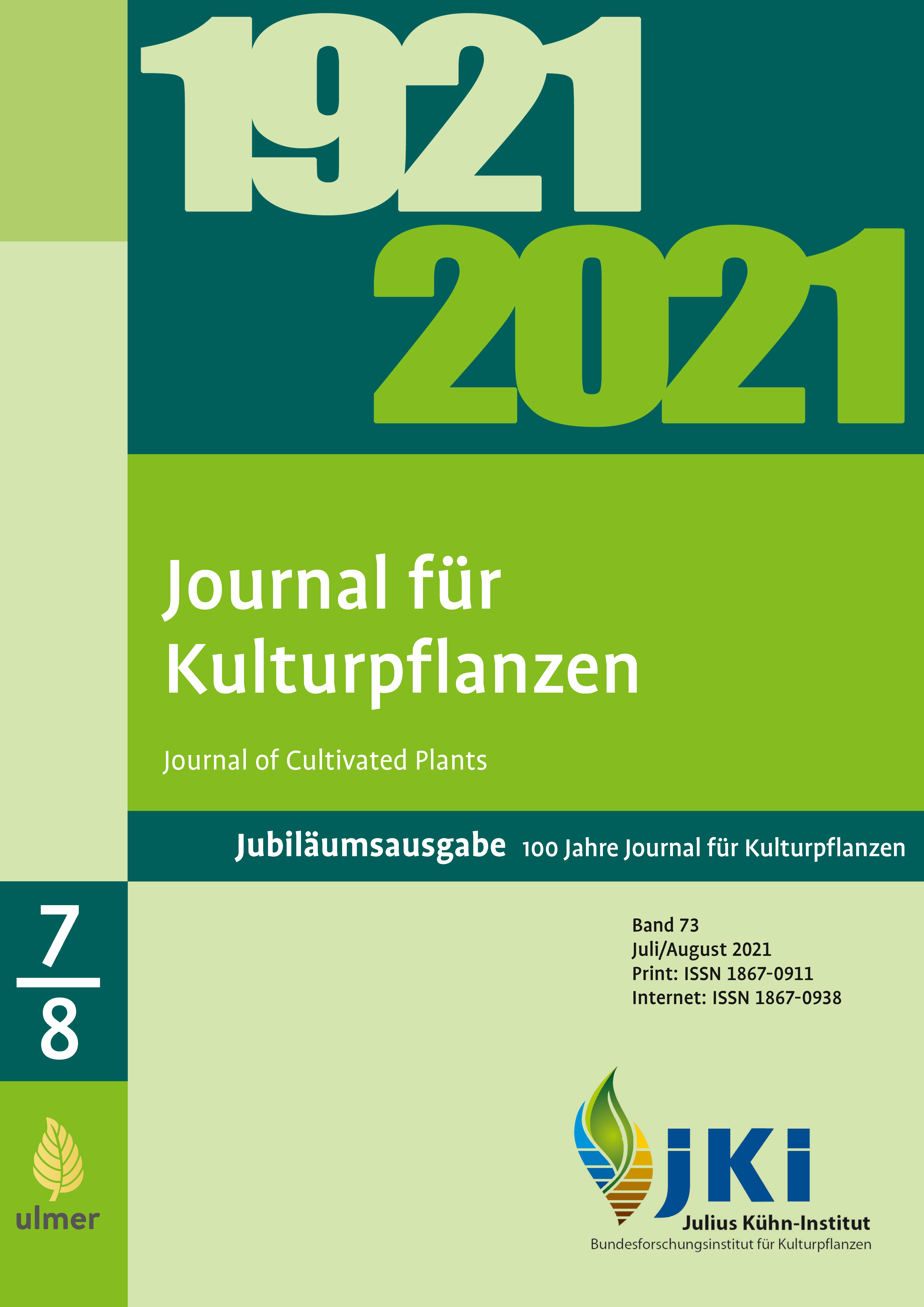The control of aphids as insect pests - From chemical crop protection to plant resistance
DOI:
https://doi.org/10.5073/JfK.2021.07-08.04Keywords:
Aphids, Vector, Integrated Pest Management, Plant Breeding, Resistance, Monitoring, InsecticideAbstract
Aphids are important insect pests due to their mass occurrence combined with direct feeding damage and their ability to transmit viruses. Contrary to the documented decline in insect diversity, aphids are apparently less affected by this trend, showing constant or even increasing numbers. For a long time, aphids could be controlled with a high efficiency by the use of chemical insecticides. However, various reasons (socio-political acceptance as well as spread of resistance) lead to a restriction of the use of conventional chemical insecticides and thus to the need to develop tools for alternative strategies. The concept of Integrated Pest Management provides various alternative approaches for pest control, e.g., plant resistance and several examples for prototypic field applications exist. In addition, the possibilities of aphid monitoring as well as examples of the use of new breeding methods (genome editing) and new dsRNA-based insecticides are discussed.
Downloads
Published
Issue
Section
License
Copyright (c) 2021 Torsten Will, Edgar Schliephake

This work is licensed under a Creative Commons Attribution 4.0 International License.
The content of the journal is licensed under the Creative Commons Attribution 4.0 License. Any user is free to share and adapt (remix, transform, build upon) the content as long as the original publication is attributed (authors, title, year, journal, issue, pages).
The copyright of the published work remains with the authors. The authors grant the Journal of Cultivated Plants, the Julius Kühn-Institut and the OpenAgrar repository the non-exclusive right to distribute and exploit the work.







